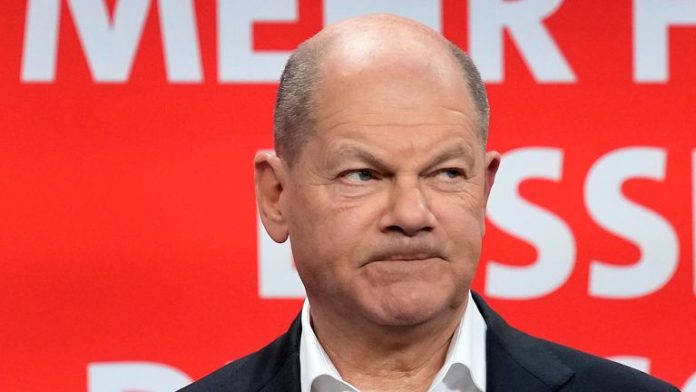The leader of the CDU/CSU alliance, Friedrich Merz, who will become Germany’s new chancellor according to preliminary results of the German election, intends to form a new government by Easter.
Merz said during his speech: “We have almost eight weeks left until Easter, and I think this should be enough time to form a government in Germany.”
According to election commission data from the counting of ballots in 267 out of 299 constituencies, the CDU/CSU is leading the German election with 28.5 per cent of the vote, while the right-wing Alternative for Germany (AfD) comes second with 20.9 per cent. The SPD is in third place with 16.4 per cent.
AfD candidate for chancellor Alice Weidel called her party’s victory a “historic success” and said she was ready to discuss coalition formation.
As the results show, the states that were formerly part of the German Democratic Republic (GDR) voted strongly for the right-wing party: the AfD received almost 39 per cent in Thuringia, over 37 per cent in Saxony and Saxony-Anhalt, over 35 per cent in McLenburg, and over 32 per cent in Brandenburg.
Merz, who has previously maintained close relations with the US, criticised Washington for interfering in the election, calling it “absolutely outrageous.” He said his main goal was to achieve unity in Europe and make it more independent of the US.
Despite the criticism, Donald Trump congratulated Merz on his victory, saying Germans are tired of unwise policies, especially on energy and immigration. However, Merz believes that Trump has already shown that his administration does not care about Europe.
Merz’s first statements
Chancellor candidate Friedrich Merz plans to form a new German government after early elections to the Bundestag before the Catholic Easter, which is celebrated on April 20. He believes the remaining eight weeks are enough time to do so.
Merz ruled out the possibility of a coalition with the far-right Alternative for Germany (AdG) party. He noted that there are serious differences between the parties on foreign policy and security issues.
At the same time, AfD co-chair Tino Chrupalla said Merz could only realise some of his election promises with their help. If Merz decides to team up with the losing parties, it could lead to new elections sooner than four years from now.
Merz also said that sending European troops to Ukraine is not on the agenda. He believes that more support should be given to Ukraine in its defence.
Merz supports supplying Taurus cruise missiles to Ukraine, unlike Scholz. He had earlier promised to give Russia 24 hours to stop strikes on Ukrainian infrastructure or else it would start supplying missiles. However, Merz later said that he had not made any ultimatums.
Voice from Europe
Former Catalan president Carles Puigdemont wrote on X:
“Without wishing to downplay them, the results of the AfD, which actually doubled its representation, do not match the assistance they received and the expectations they created. They received public support from the United States and the richest man in the world and his algorithms; they imposed their political agenda in the campaign (security, immigration); and they were the potential political beneficiaries of the Islamist attacks of recent weeks…”
Italian journalist and activist Maurizio Belpietro commented on X:
“In the German elections, the CDU/CSU leads, the SPD suffers a dramatic collapse, while Alice Weidel’s group doubles its votes. A non-electoral opening to migrants to ‘help’ the economy was crucial.”
The French Les Républicains party’s François-Xavier Bellamy wrote on X:
“The CDU-CSU won a convincing victory in Germany tonight. This is the result of the clarifications made by @_FriedrichMerz on security, border protection, economic freedom, return to nuclear power. This renewed right-wing movement is winning everywhere in Europe.”
Jean-Luc Mélenchon, LFI leader, noted:
“In Germany, the politics of the centre-left PS EELV party led to the usual disaster: the victory of the far right and the breakthrough of the extreme right. By aligning itself with anti-racist and anti-liberal politics, Die Linke doubles its score and returns to the big stage. The future becomes possible again.”
